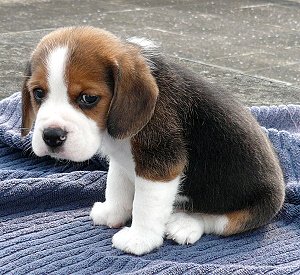Or, What happens when the puppies start chewing on your genre?
 The literary world is as turbulent as any other. Recently it seems that never a week goes by without some literary row breaking loose and polarising writers, readers, publishers or distributors. One of the most divisive spats of recent months has been the full scale cultural war which has broken out in the world of science fiction.
The literary world is as turbulent as any other. Recently it seems that never a week goes by without some literary row breaking loose and polarising writers, readers, publishers or distributors. One of the most divisive spats of recent months has been the full scale cultural war which has broken out in the world of science fiction.
First I must come clean about my own guilty secret. Until now only my closest friends will have been aware of this but it is time to come out to the world! I am, always have been and probably always will be, a science fiction fan. You’ve heard it here folks. T.J. Masters is a S.F. fan, big time, and I am proud of it!
I have always read good S.F. because as a youngster it was a great form of escapism – but more than that, it fuelled my dreams and taught me to believe that all futures were possible. As I grew older and started to aspire to higher literary ideals, I became frustrated with the way that S.F. appeared to always be side-lined by the wider literary world as if it were some lower form of writing. To its credit, S.F. has always had a thick skin, and carried on regardless. As with so many other areas of life, the genre had for decades been a stronghold of white male authors and readers. Slowly things started to change as a handful of brilliant women stuck their heads above the parapet. Their success was based on simple talent and no little amount of determination.
One of the measures of diversity in any genre is the range of genders, sexualities and races represented in any of the high profile award shortlists. In the world of Science Fiction, one of the most prestigious of the awards is the Hugo list which are awarded at the World Science Fiction Convention every August. The Hugos first appeared in 1953 but it was not until 1968 that Anne Mc Caffrey became the first woman writer to win the fiction award. For several decades the ratio of nominations remained around 80% in favour of the white male authors.
Between 2011 and 2014 the gap closed rapidly to the point where at least the nominations were fairly equal. Then, inevitably, came the backlash. A few conservative fans became ever more vocal about what they saw as a left wing liberal slide in standards allowing non-white, non-male and even non-heterosexual authors and book characters to rise. In 2013 a right wing collective came together under the sobriquet of Sad Puppies.
Then, inevitably, came the backlash. A few conservative fans became ever more vocal about what they saw as a left wing liberal slide in standards allowing non-white, non-male and even non-heterosexual authors and book characters to rise. In 2013 a right wing collective came together under the sobriquet of Sad Puppies.
It had always been an important feature of the Hugos that nominations came directly from the fans who had become paid up members of the WorldCon event. The relatively small size of the electorate meant that it was not difficult to hijack the somewhat complex voting process in order to engineer a change. So it was that the Sad Puppies and the newer but altogether more vitriolic Rabid Puppies have been able to return the list of nominations to the previous 80:20 ratio in favour of conservative white males. This, however, is not the whole extent of the intervention which has a stated aim of reversing the trend towards true diversity and social maturity in both writers and the themes and characters that they write about. The argument is that S.F. has developed literary pretensions and has become too socially aware due to a sinister left-wing conspiracy.
What has all this got to do with our own much loved genre you ask? Well, shocking though the Sad Puppies affair has been, it could happen at any time in any genre. In the field of m/m romance there are already those who drag out the perennial arguments about women writing gay themes. The Sad Puppies present themselves as reasonable conservatives just wishing to neutralise an unfair liberal leftist bias. Some felt that this did not go far enough and so the far more right-wing, misogynistic and conservative Rabid Puppies were formed. Such polarisation happens all too easily and all too often.
It is my profound belief that all authors should be striving to reach ever higher literary and cultural ideals. We must be the beacons of excellence who light the way and give our readers the words they need to express their desire for a better future. Awards should be granted to those who have written the best stories and created the best characters no matter who they are. Let talent speak for itself and let all those who would spout dogma be ignored. Political dogma, religious dogma, gender dogma or sexual dogma have no place in the wider world and must never be given credence in the literary world.
For me, Science Fiction has always been fun to read. S.F. has always opened my mind to social and technological change. My ability to embrace change and accept diversity stems directly from my youthful discovery of future worlds, distant civilisations and diverse lifeforms. I find it sad and distressing that those very themes are now being denied by conservative fans who seem to have missed the point completely. We must be vigilant and remain as we have always been, each other’s most supportive fans, open minded and generous of spirit. Let’s make sure that we keep our awards clean and true and open to all. If you are reading this and thinking that it’s not our problem yet then go read up on the Sad Puppies or Gamergate or find some articles on Women writing gay fiction or men writing Chiclit? The warning signs are there and we should not ignore them.
 T.J.Masters writes m/m romance and BDSM tales www.tjmasters.com
T.J.Masters writes m/m romance and BDSM tales www.tjmasters.com
There is also a regular BDSM blog for writers and practitioners at www.mastertim.co.uk

T.J., you are so right. Like you, I am a longtime SF fan, and even in my younger days, the female authors were knocking the ball out of the park. Not only Anne McCaffrey, but DC Fontana, CJ Cherryh, Lois McMaster Bujold, Sherri Tepper to name a few, Cherryh still being top of the list for me, ahead of the rest regardless of gender. It’s so sad that when the majority feels threatened, their instinctive reactions are aggression and insults. You’d think that in the SF genre – which celebrates differences – they’d be a little higher up the evolution tree and no longer leaning on their knuckles…
You are so right Chris. There were many women but sadly they often hid their identities with ambiguous names, pseudonyms or non-descript initials; Leigh Brackett, JR, C.L.Moore or famously James Tiptree who had considerable success because everyone thought she was a man! Sadly even the women who were open about their gender still wrote from a male POV to get themselves published. A good example of that was Ursula K.Le Guin who later admitted doing it in her earlier works.
Take the puppies to the vet. A quick snip often resolves antisocial behavior. Seriously, the Worldcon committee needs to set and enforce rules that allow them to cancel and ban members who issue threats.